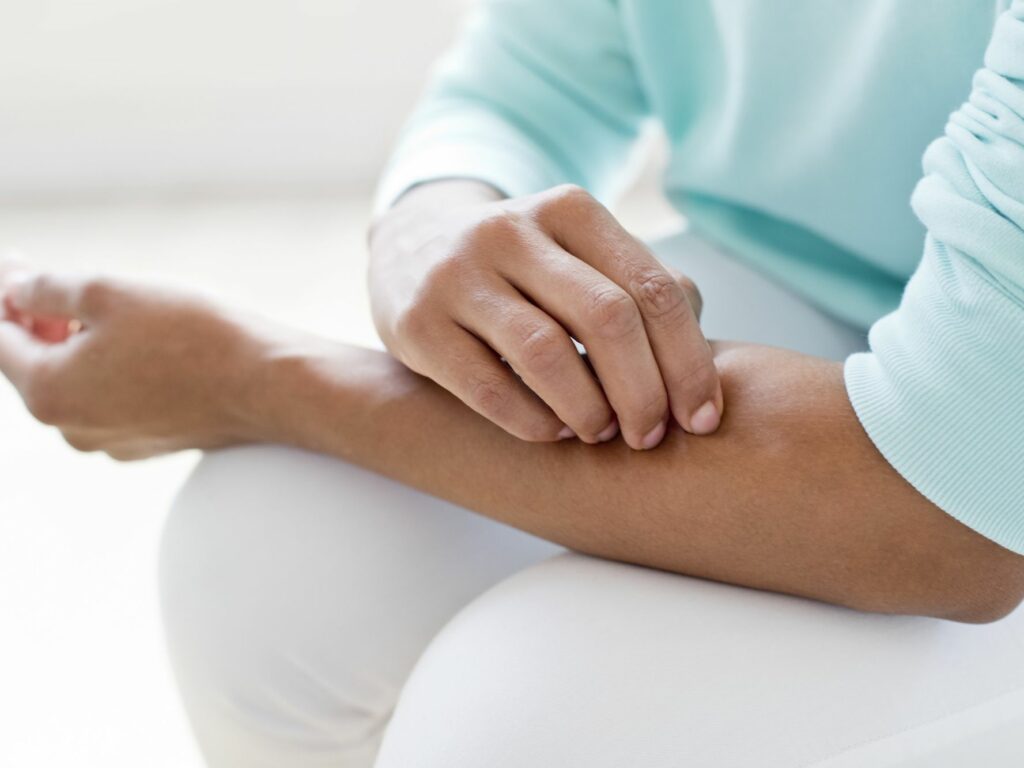Do you have a skin condition that causes you to scratch your skin until it bleeds? If so, you may have excoriation disorder. This rare skin condition can be very difficult to live with, as it can cause a great deal of pain and discomfort. In this blog post, we will discuss excoriation disorder in detail. We will cover everything from the symptoms to the treatment options. We hope that this information will help you better understand this condition and how to best manage it.
Contents
What Is Excoriation Disorder?
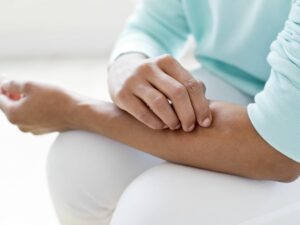 Excoriation disorder, also called dermatillomania, skin-picking disorder, or excoriation addiction is a mental disorder characterized by the repetitive urge to pick at one’s skin. This picking can lead to open sores and scars. People with excoriation disorder often feel compelled to pick at their skin in response to anxiety or stress. The condition is thought to be relatively rare, affecting an estimated 0.63% of the population. Treatment for excoriation disorder typically involves a combination of medication and therapy.
Excoriation disorder, also called dermatillomania, skin-picking disorder, or excoriation addiction is a mental disorder characterized by the repetitive urge to pick at one’s skin. This picking can lead to open sores and scars. People with excoriation disorder often feel compelled to pick at their skin in response to anxiety or stress. The condition is thought to be relatively rare, affecting an estimated 0.63% of the population. Treatment for excoriation disorder typically involves a combination of medication and therapy.
There are a few different ways that people with excoriation disorder can pick at their skin. Some people use their fingernails, while others may use tools such as tweezers or needles. Picking can occur anywhere on the body, but it is most commonly found on the face, arms, and legs.
People with excoriation disorder often go to great lengths to hide their condition from others. They may wear long-sleeved shirts or pants even in hot weather. They may also avoid social situations altogether out of fear that someone will see their scars.
The exact cause of excoriation disorder is unknown, but it is thought to be associated with other mental health conditions such as anxiety, depression, and OCD. Treatment for excoriation disorder typically involves a combination of medication and therapy. Medications such as antidepressants and anti-anxiety medications may be prescribed to help lessen the urge to pick at the skin. Therapy can also help teach people coping skills to deal with the anxiety and stress that trigger their skin picking.
Signs of Excoriation Disorder
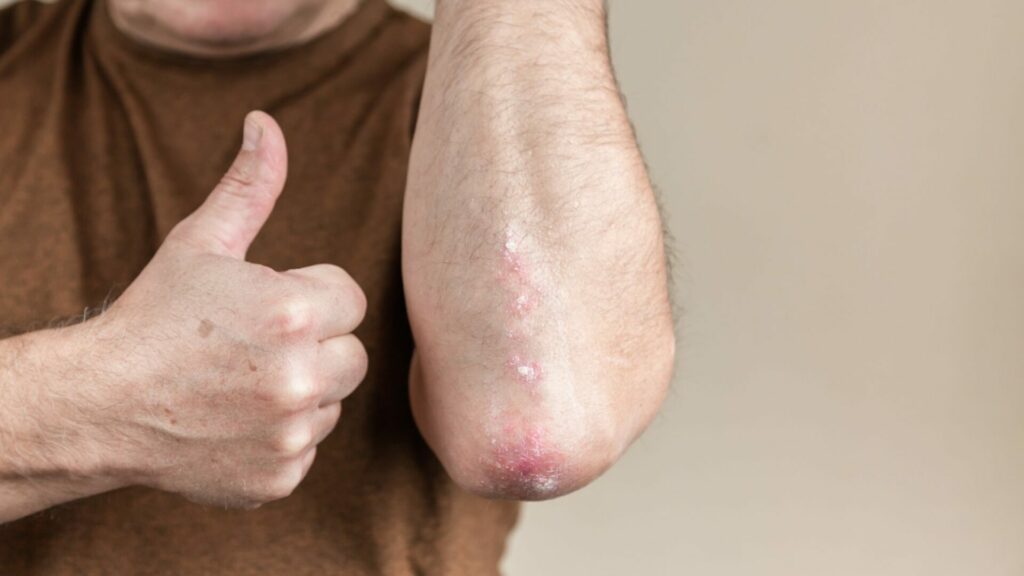
There are many signs of excoriation disorder, which can make it difficult to diagnose. The most common sign is repeated skin picking, which can lead to scabs, scars, and infections. Other signs include:
One of the most common signs of excoriation disorder is avoidance of social situations. This may be due to embarrassment about the appearance of the skin or fear that others will notice the picking. Sometimes there may be many scabs or scars in visible areas such as the face, neck, and arms.
Anxiety and stress
People with excoriation disorder often report feeling anxious or stressed. This may be due to the fear of picking or the shame associated with the condition. The anxiety and stress can also trigger skin-picking episodes. There are some reports of people picking in response to anxiety or stress, in an attempt to “release” the tension.
Depression
Depression is often comorbid with excoriation disorder. This may be due to the negative impact the condition has on one’s appearance and self-esteem. The shame and embarrassment associated with the condition can also lead to social isolation, which can worsen depression.
Compulsion to pick
Many people with excoriation disorder feel a strong compulsion to pick at their skin. This may be in response to anxiety or stress, or it may be an attempt to relieve boredom. The urge to pick can be so strong that it interferes with daily activities such as work, school, and relationships.
Feeling of relief or satisfaction after picking
Some people with excoriation disorder report feeling relieved or satisfied after picking at their skin. This may be due to the release of endorphins, which can provide a temporary sense of well-being. However, the relief is usually short-lived and is followed by feelings of guilt and shame.
Having difficulty stopping
This sign of excoriation disorder is closely related to the compulsion to pick. People with this condition often find it difficult to stop picking, even when they want to. This can lead to significant skin damage and scarring.
Causes of Excoriation Disorder

There are many causes of excoriation disorder, but the most common is anxiety. People with excoriation disorder may worry about their skin constantly, and this can lead to compulsive skin picking. Other causes include:
Stress
One of the constant triggers for people with excoriation disorder is stress. The anxiety and worry associated with the condition can be very stressful, and this can trigger skin-picking episodes. Sometimes there may be also many scabs or scars in visible areas such as the face, neck, and arms.
Boredom
Another trigger for people with excoriation disorder is boredom. The compulsion to pick can be so strong that it interferes with daily activities such as work, school, and relationships. When people are also feeling stressed, the urge to pick can be even stronger.
Negative emotions
People with excoriation disorder often report feeling negative emotions such as sadness, anger, and shame. These emotions can trigger skin-picking episodes, in an attempt to “release” the tension. The negative emotions can also lead to social isolation, which can worsen depression.
Obsessive Thoughts
An obsession with thoughts of picking can also trigger skin-picking episodes. People with excoriation disorder may worry about their skin constantly, and this can lead to compulsive skin picking. Sometimes there may also be many scabs or scars in visible areas such as the face, neck, and arms.
Trauma
Trauma can be another cause of excoriation disorder. If someone has experienced a lot of trauma in their life, they may develop this condition as a way to cope with that trauma. Trauma can include things like abuse, neglect, or even just witnessing something traumatic. Sometimes there can also be a genetic component to excoriation disorder, which means that it can be passed down among family members.
Genetics
An individual’s genes may be a factor in the development of excoriation disorder. This is because the condition has been found to run in families. If someone has a close relative with the condition, they are more likely to develop it themselves. Sometimes there may be also many as three or four generations affected by the condition.
The environment individual is raised in may also play a role. For example, if a child grows up in a household where skin picking is considered normal behavior, they are more likely to develop the condition themselves. This is because they will not learn that skin picking is abnormal and can be harmful.
Stressful Life Events
Another potential trigger for excoriation disorder is experiencing a stressful life event. This could be anything from the death of a loved one to losing your job. If you’re already struggling with anxiety or depression, these events can act as a trigger for your skin picking. Sometimes these stressors are so life-changing that they cause major disruptions in your life, which can make it difficult to cope and lead to skin picking.
Negative Impacts of Excoriation Disorder

There are many negative impacts of excoriation disorder. Some of these impacts are:
Physical Scars
One of the main physical effects of excoriation disorder is the development of scars. If you pick at your skin long enough, it will eventually break open and bleed. As your skin heals, it will form a scar. Over time, these scars can become permanent and can be very noticeable, which can lead to feelings of shame and embarrassment.
Infections
Another physical effect of excoriation disorder is an increased risk for infections. When you pick at your skin, you’re opening up wounds that are susceptible to bacteria. This puts you at a higher risk for developing skin infections, which can be painful and difficult to treat. Sometimes there can also be many complications with infections, which can lead to other health problems.
Emotional Effects
There are also many emotional effects of excoriation disorder. People with this condition often report feelings of shame, embarrassment, and isolation. This is because the condition can be very visible and people may not understand what you’re going through. It’s important to seek out support from friends, family, or a mental health professional if you’re struggling with these emotions.
Isolation
Another emotional effect of excoriation disorder is isolation. This is because the condition can be very stigmatizing and people may not want to be around you if they know you have it. This can lead to feelings of loneliness and depression. If you’re struggling with isolation, it’s important to seek out support from friends, family, or mental health professionals.
Impacts Quality of Life
Another impact of excoriation disorder is the way it can affect a person’s quality of life. The condition can be extremely distressing and painful, making it difficult to carry out everyday activities. Sufferers may also feel embarrassed or ashamed of their appearance, which can lead to social isolation. People also miss work or school due to the condition, which can lead to financial difficulties.
Relationship Issues
Another issue that can arise from excoriation disorder is problems in relationships. The condition can put a strain on even the strongest of relationships. Sufferers may find it difficult to be intimate with their partners due to the pain and embarrassment they feel. They may also withdraw from social activities, which can lead to arguments and tensions within the relationship.
Diagnosis of Excoriation Disorder
 The diagnosis of excoriation disorder is made when a person has repeatedly tried to pick at their skin, resulting in significant distress and impairment in functioning. The individual must have also made repeated attempts to stop picking at their skin, without success. To be diagnosed with this type of disorder, the picking must not be due to another mental health condition, such as body dysmorphic disorder or obsessive-compulsive disorder.
The diagnosis of excoriation disorder is made when a person has repeatedly tried to pick at their skin, resulting in significant distress and impairment in functioning. The individual must have also made repeated attempts to stop picking at their skin, without success. To be diagnosed with this type of disorder, the picking must not be due to another mental health condition, such as body dysmorphic disorder or obsessive-compulsive disorder.
No one test can diagnose excoriation disorder. Rather, the diagnosis is made based on a clinical assessment by a mental health professional. This assessment will usually involve taking a detailed history of the individual’s skin-picking behavior and its impact on their life. It is also important to rule out other potential causes of the skin-picking behavior, such as a medical condition or the use of certain drugs.
If you think you may have excoriation disorder, it is important to seek professional help. A mental health professional can provide you with the support and treatment you need to manage your condition. You should always get a second opinion if you have any doubts about your diagnosis.
Excoriation disorder is a rare condition that can be difficult to deal with. However, with the right treatment, many people can live happy and healthy lives. If you think you may have this type of disorder, don’t hesitate to seek professional help. With the right support, you can learn to manage your condition and live a fulfilling life.
Treatment of Excoriation Disorder
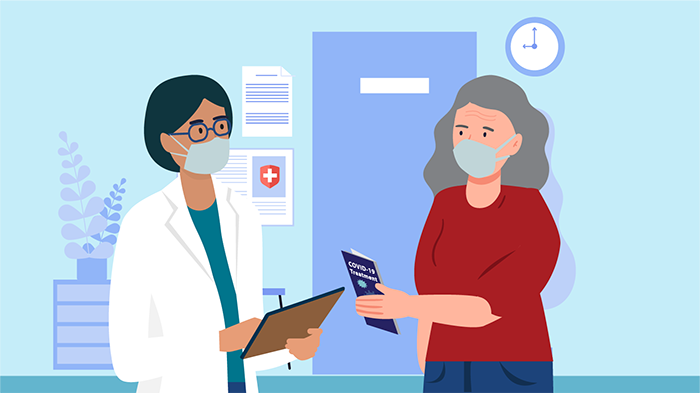
There is no one-size-fits-all approach to treating excoriation disorder. The most effective treatment plan will be tailored to the individual’s specific needs and circumstances. Some common treatment approaches include:
Medications
Medication is one option that may be used to treat excoriation disorder. The most commonly prescribed medications are antidepressants, anti-anxiety medications, and antipsychotics. These medications can help to reduce the urge to pick at the skin and improve mood.
Some of these medications are available over-the-counter, while others require a prescription from a doctor. It is important to speak to your doctor about the risks and benefits of any medication before starting treatment.
Psychotherapy
Psychotherapy is another common treatment approach for this type of disorder. This type of therapy can help people to understand their condition and develop coping strategies to deal with the urge to pick at their skin. There are many types of therapy are:
Cognitive-behavioral therapy (CBT)
CBT is a type of therapy that focuses on changing negative thoughts and behaviors. Also, CBT can be used to help people with this type of disorder identify and change the thoughts and behaviors that contribute to their condition. CBT works by helping people to understand how their thoughts and behaviors affect each other.
Exposure and response prevention (ERP)
ERP is a type of therapy that helps people to confront their fears and learn to control their reactions to them. This type of therapy can be used to help people with excoriation disorder deal with the urge to pick at their skin. ERP works by gradually exposing people to the things they are afraid of (exposure) and teaching them how to control their reactions (response prevention).
Family-based therapy
Family-based therapy is a type of therapy that involves the whole family in treatment. This type of therapy can be used to help families understand and support a person with excoriation disorder. Family-based therapy can also help to improve communication and problem-solving skills within the family.
Acceptance and commitment therapy (ACT)
ACT is a type of therapy that helps people to accept their thoughts and feelings without judgment. This type of therapy can be used to help people with excoriation disorder deal with the urge to pick at their skin. ACT works by helping people to understand that their thoughts are not always accurate and that they can choose how to respond to them.
Hospitalization
In some cases, hospitalization may be necessary. This is usually only considered if someone is a danger to themselves or others, or if they are not able to care for themselves. Hospitalization can provide a safe environment for people with excoriation disorder while they receive treatment.
Support groups
Support groups provide a space for people with excoriation disorder to share their experiences and connect with others who understand what they are going through. Also, Support groups can be a helpful addition to other forms of treatment, such as medication or psychotherapy. These support groups are also a great way to find out about new resources and treatments.
Self-Care
There are also many things you can do on your own to help manage excoriation disorder. These self-care strategies can help to reduce the urge to pick at your skin and improve your overall well-being. Some self-care strategies include:
• Getting good sleep: One of the most important things you can do for your health is to get enough sleep. Sleep gives your body a chance to heal and repair itself. If you are not getting enough sleep, it can make excoriation disorder worse.
• Eating a healthy diet: Eating a balanced diet is important for overall health. It can also help to reduce the urge to pick at your skin. Foods that are high in Vitamins A, C, and E, as well as omega-three fatty acids, can be particularly helpful.
• Reducing stress: Stress can make excoriation disorder worse. Learning how to manage stress can help to reduce the urge to pick at your skin. Some stress-reducing techniques include meditation, yoga, and deep breathing.
• Exercise: Exercise is not only good for your physical health, but it can also improve your mental health. Exercise can help to reduce stress and improve your mood. This can in turn reduce the urge to pick at your skin.
These are some self-care strategies that can help to reduce the urge to pick at your skin. If you are struggling to control the urge to pick, it is important to seek professional help. Excoriation disorder is a serious condition that requires treatment.
How To Avoid Excoriation Disorder?
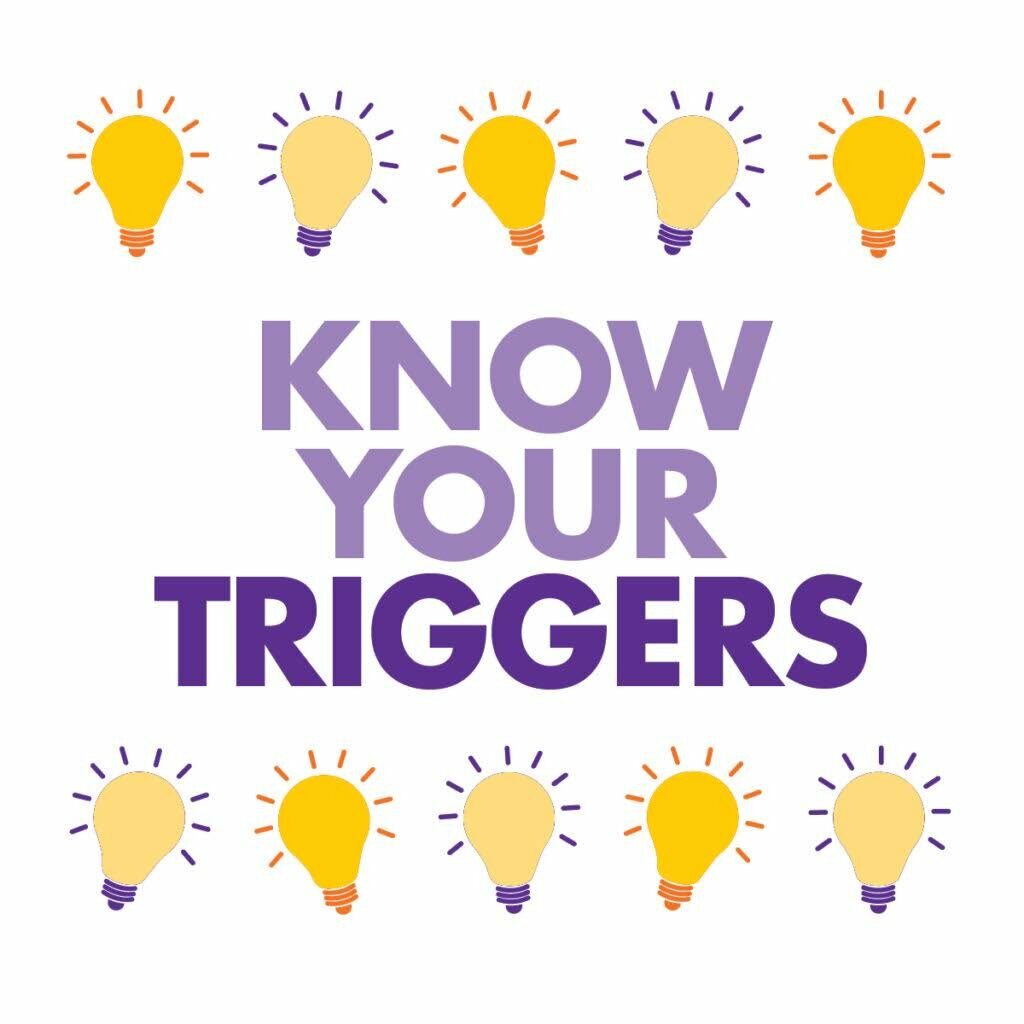
Avoiding Excoriation Disorder can be difficult as it is often related to anxiety or other mental health conditions. However, some things can help.
Identifying Triggers
One of the best ways to avoid Excoriation Disorder is to identify your triggers. If you know what causes you to pick at your skin, you can try to avoid those situations. These triggers are different for everyone, but some common triggers include:
- Boredom
- Stress
- Anxiety
- Anger
- sadness
Finding Alternatives
Another way to avoid Excoriation Disorder is to find alternatives to picking at your skin. This can be difficult, as picking can often feel like the only way to relieve tension. However, there are many other things that you can do instead of picking. Some alternatives include:
- Squeezing a stress ball
- Knitting or crocheting
- painting
- Drawing
- Playing an instrument
- Exercise
Challenging Negative Thoughts
An important part of avoiding Excoriation Disorder is challenging your negative thoughts. If you are having thoughts that lead you to pick at your skin, it is important to question those thoughts. Ask yourself if those thoughts are true. Are they helpful? What would happen if you didn’t act on those thoughts? These are all important questions to consider.
Finding Professional Help
If you are struggling to avoid Excoriation Disorder, it is important to seek professional help. This is a serious condition that requires treatment. A therapist can help you to identify your triggers and find other ways to cope with your urges. If you are struggling to control the urge to pick, please seek professional help.
Avoiding Excoriation Disorder can be difficult, but it is possible. If you are struggling to control the urge to pick, seek professional help. This is a serious condition that requires treatment.
Helping Someone With Excoriation Disorder
Helping someone with excoriation disorder can be difficult. The person may not want to seek help or may be unaware that they have a problem. If you are close to someone with the condition, you can offer support and encourage them to seek treatment.
These are some of the tips to help someone with excoriation disorder:
Offer Support
One of the best things you can do is offer support. This includes emotional support and understanding. It’s important to be patient with someone with excoriation disorder as they may have a hard time opening up about their condition.
Encourage Treatment
If the person is willing to seek help, encourage them to treatment. This may include therapy, medication, or both. Treatment can be difficult and it’s important to be supportive throughout the process.
Educate Yourself
It’s also important to educate yourself about excoriation disorder. This will help you better understand the condition and how to best support your loved one. There are many resources available online and at local libraries.
Listen To Them
Another thing that you can do is simply listen to the person with this type of disorder. This includes listening to their concerns, fears, and thoughts. It’s important to provide a safe and non-judgmental space for them to express themselves.
These are just some of the ways that you can help someone with excoriation disorder. If you think that you or someone you know may have the condition, it’s important to seek professional help.
Conclusion
Excoriation disorder is a rare but serious skin condition that can cause significant physical and emotional distress. If you or someone you know has this condition, it’s important to seek professional help. With treatment, people with excoriation disorder can learn how to manage their symptoms and improve their quality of life. This condition is not currently curable, but research is ongoing.
If you’re struggling with excoriation disorder, know that you’re not alone. There are many resources available to help you cope with this condition. Treatment can make a big difference in your quality of life. So don’t hesitate to reach out for help if you need it.
Your mental health — Your psychological, emotional, and social well-being — has an impact on every aspect of your life.
Hope this article was of help to you! If you are suffering from OCD, you may seek help from Therapy Mantra. We have a team of highly trained and experienced therapists who can provide you with the tools and skills necessary for overcoming OCD. Contact us today to schedule an online therapy or download our free OCD treatment app on Android or iOS for more information.
